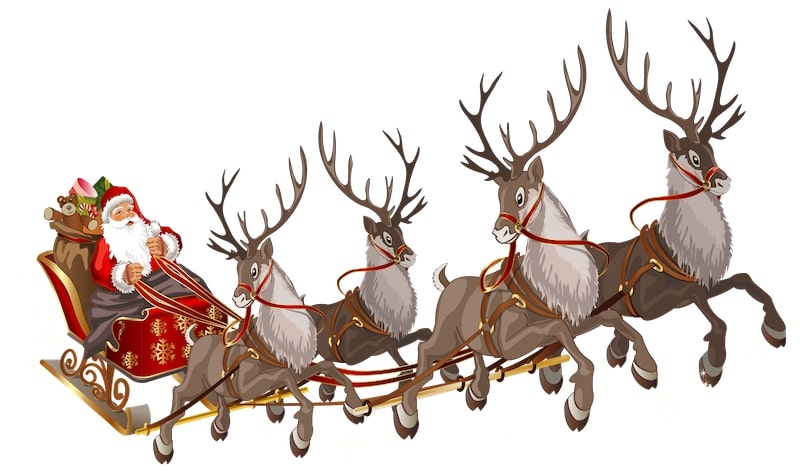No doubt a large part of the problem is that I don’t belong to either of the two religions that celebrate holidays on that date nowadays. That is to say, I’m not a Christian, and I’m also not a Consumerist. There’s a certain history behind the way that these two faiths celebrate the same day, but I hope none of my readers confuse Christmas with what we may as well call Glurgemas.
Glurge, as my internet-savvy readers doubtless knew long before I did, is an online neologism for a particular kind of canned sentimentality much in evidence during this season. (The resemblance to the noise made shortly before doubling over with gastric distress is of course not accidental.)
To count as glurge, a bit of sentimental drivel has to be completely over the top, and it also has to be as fake as the proverbial three-dollar bill. Here in the United States, at least, nearly every scrap of holiday “cheer” churned out by the corporate media qualifies as glurge, and so the term comes forcefully to mind as a useful label for the holiday that has replaced Christmas in today’s America.
“Replaced” is of course the relevant word. Christmas is, ahem, a Christian holiday, and its symbolism centers on the birth of Jesus as recorded in the Gospels. It has its own carols, its own customs, and its own iconography, all of which focus on that event.
Glurgemas, by contrast, focuses on gifts and goodies. It also has its own carols, customs, and iconography, mostly focused on Santa Claus and an assortment of generic emblems such as snowflakes and sleigh rides, and it’s never hard to figure out which is which.
In a certain sense, of course, the difference is academic to me; I don’t belong to either faith, and while I have an outsider’s appreciation for Christmas traditions and a healthy disgust for the various expressions of Glurgemas, I find neither one especially relevant.
Ah, but this year is different. This year I’m feeling a sudden and wholly uncharacteristic uprush of holiday spirit. It’s the season for giving, and it so happens that I have some very special gifts to hand out. So gather around, children, as your Druid uncle opens a big leather sack and reaches in.
The first gift I’d like to give is the day after Thanksgiving, and I’m giving it back to America’s families. My readers abroad may not be aware that since the Civil War, when it was instituted by Abraham Lincoln, the fourth Thursday in November is one of the quintessentially American holidays. (It doesn’t actually have anything to do with the Pilgrims; they were photoshopped in long afterwards.)
Its roots are in a long tradition of European harvest festivals, which are themselves based on the sigh of relief that everyone in traditional agricultural societies lets out as soon as the last sheaf of grain is in the barn and the next year’s food supply is more or less assured. Since that’s also the time when livestock that can’t be fed over the winter gets turned into sausages, cutlets, and roasts, it’s traditionally a time to gorge yourself on plenty of food in preparation for the cold months ahead.
The day after Thanksgiving, not inappropriately, used to be celebrated in its low-key way as a fine opportunity to flop on the sofa, eat meals made up entirely of Thanksgiving leftovers, and avoid doing anything useful for a whole day, since everyone but the most essential workers had the day off.
Of course our corporate lords and masters took offense at this, since it didn’t add anything to their bottom line. That’s when Black Friday was invented.
Black Friday? That’s the name given it by the lost souls who have to work the gargantuan Christmas sales scheduled that day by big box stores, which use rock-bottom prices and no-holds-barred propaganda to whip people up into a frenzy of abject greed. Good-bye, pleasant hours doing nothing that makes anyone a profit; hello, a rising toll of injuries and occasional deaths as people trample each other to get at the latest wretched gewgaws.
Fortunately help is on the way. Back in 1992 a bright soul named Ted Dave proposed that there should be a Buy Nothing Day every year. Despite shrieks of outrage emanating from corner offices across the land, and a frantic and ongoing effort to keep any reference to the project out of the media and off the more frequented ends of the internet, the idea caught on.
From 1997 on, it’s been celebrated the Friday after Thanksgiving in the United States, England, and Finland, and the Saturday afterwards in the rest of the world. This year, Buy Nothing Day is on November 26 and November 27 respectively.
How do you celebrate Buy Nothing Day? Why, by buying absolutely nothing: not in person, not on the internet, not in any other way. That one day of the year is a day of freedom from buying and selling.
The gibbering inmates of the corner offices just mentioned like to pretend that the power of money extends to every corner of human existence, and that nothing matters unless it involves somebody buying something. Breaking out of that one-dimensional pseudoreality is a necessary step in regaining basic sanity, not to mention a certain degree of liberty, and reminding yourself that it’s possible to have a fine time without spending a cent is a useful step in that direction.
Thus I’d like to suggest that my readers spend Buy Nothing Day in the traditional manner -- you know, sitting around not doing much, eating Thanksgiving leftovers, maybe breaking out a cribbage board or some other game, and otherwise taking a break from the ongoing flustered cluck of life in a declining industrial society.
While you’re still oohing and aahing over this first gift, I’ll take the liberty of mentioning that there may be another one wrapped up with it.
A few lines back I mentioned the lost souls who are expected to work on the day after Thanksgiving and have to face shrieking, foam-flecked mobs of consumers in exchange for a measly minimum wage. I hope I don’t have to remind anyone reading this post that this is part of an entire culture of abuse and exploitation directed by our society’s managerial class at working class Americans, who are expected to put up with miserable conditions and humiliating policies for absurdly low pay with no benefits so that the stock portfolios and pension funds of their soi-disant betters can continue to climb upwards forever.
Given the seasonal theme of this post, it seems appropriate to bring in a reference to Charles Dickens at this point. No, it won’t be from “A Christmas Carol,” either.
In Bleak House, Dickens introduces the memorable character of Mrs. Jellyby. She’s one of the self-identified Good People™ of her time, full of compassion for the natives of an African country called Booriobooli-Gha.
Of course her overflowing compassion never quite manages to reach as far as helping the people who are dependent on her, much less doing anything for the working poor of London whose short and wretched lives support her comfortable existence. Dickens invented a helpful term for her style of virtue signaling: “telescopic philanthropy.”
I doubt the celebrities and plutocrats who clustered around the COP-26 climate change conference, for all the world like flies on a dead rat, have ever heard of telescopic philanthropy, but any one of them could give Mrs. Jellyby lessons in how to practice it.
As it happens, however, the working people who have been assigned the role of carrying the costs while the Good People™ reap the benefits have ideas of their own. It was, as I’ve noted elsewhere, not exactly a bright idea for the managerial class of the industrial world to impose lockdowns on so many countries over the last year and a half or so.
A very large number of the working people laid off as a result found other ways to get by, and you know, quite a few of them have settled quite comfortably into those new arrangements and are far from eager to go back to work under the old terms. (That’s spelled “labor shortage,” in case you were wondering.)
This has encouraged people who are still putting up with employment to begin to think some good old-fashioned thoughts about staging a walkout. I’ve started to see discussions of a general strike on the Friday after Thanksgiving, and even some suggestions that it run on for 10 days after that.
This seems like a very good idea to me. It so happens that I managed to claw my way out of being an employee 25 years ago, and the day that I quit my last job and went to work as a full-time freelance writer still counts as one of the happiest days of my life. I still remember what it was like to work for minimum wage, and deal with employers and customers who treated me as a disposable object.
I always keep Buy Nothing Day quite strictly, but this year I have even more reason to do so.
What you do on those days, dear reader, is of course up to you, but I hope that plenty of people will honor Buy Nothing Day this year. It would be nice to see corporations forced to remember that their workers are human beings with human needs which have to be taken into account, even if that means that some strutting kleptocrat doesn’t get his next billion as soon as he wants it.
So that’s the second gift I’d like to hand out: better wages and conditions for working Americans.
Let me reach into my bag again and haul out the next gift. It’s a big one, because I’m giving Christmas back to the Christians.
It was their holiday originally, as mentioned above, and quite a few Christians have never been happy about the way it was hijacked, handed over to the mass media, and turned into a celebration of limitless greed. I think they deserve to have it back. Mind you, it’s going to take some unpacking, because Christmas has been covered with a sticky layer of Glurgemas trappings and that will all have to be peeled off.
Fortunately the work is already being done. There’s an outfit with the winsome name The Advent Conspiracy that’s moving hard in that direction. I’ve also heard from plenty of Christians who aren’t in that group, but who are busy dusting off traditional religious ways of celebrating the season and doing a little necessary de-Santa-fication while they’re at it.
That’s an essential step right now because Christianity is now for all practical purposes a minority religion in the United States. It’s a large minority, to be sure, but it can no longer count on having the various perks and benefits that majorities have.
This means that Christians have to get their act together, and making Christmas a Christian celebration again is an important part of that. The thing I don’t think most of them realize is that this may also be the salvation of American Christianity.
Even more than most other religions, Christianity does very poorly when it becomes a majority faith with significant political influence. Look at the countries of Europe for a good example.
In Western Europe, Christianity is in its death throes, with the percentage of the population attending church in single digits; in Eastern Europe, Christianity is by and large thriving.
What’s the difference? It’s quite simple: west of the old Iron Curtain, by and large, one or another form of Christianity has the role of an established church, legally privileged and protected by the state for the last several centuries. On the other side, until quite recently, Christianity was an embattled minority faith persecuted by the state. The former is the death of the churches; the latter gave the churches new life.
Most people on all sides of the political landscape misunderstand the concept of the separation of church and state: they think it’s there to protect the state from religious interference. Au contraire, it’s there to protect churches from political interference.
A glance back through history shows this with brutal clarity. Religious denominations seek political privilege because they think, in their dewy-eyed innocence, that this means they will be able to tell the politicians what to do. No doubt this happens now and then at first, but the tables always turn.
Before long the politicians are deciding who gets promoted to important religious positions, what items of belief are acceptable in the official creed, what Sunday sermons can and cannot discuss, and so on. Let that process run its course, and you get the standard Western European established church, staffed by government functionaries in funny clothing, who preside over big empty churches where 3 percent or so of the population shows up for services, and have to check any public pronouncement with the secular authorities in advance.
American Christianity came perilously close to that fate more than once in the 20th century, but it seems to have dodged the bullet. Now all that American Christians have to do, as they move further into minority status and get used to that condition, is affirm their role as a people set apart for the worship of their god, and distance themselves and their customs from the secular world around them.
Taking Christmas back is a great way to further that. In the future, if you see a family that ignores Glurgemas and instead celebrates the Advent season and Christmas in a dignified and openly religious way, you can just say, “Oh, that’s right, they’re Christians, aren’t they?”
What about those of us who don’t happen to be Christian? Well, since the Christians are getting their holiday back, the rest of us can make other arrangements.
Those who are comfortable with the Consumerist faith don’t have to do a thing -- they’ve still got Santa and sleigh bells and the rest of it, and since Christian symbols, carols, and concepts have been purged from public life in recent years, all they have to do is wish each other “Happy Holidays!” and get on with it.
There are, however, plenty of other options available in our pluralistic society.
As a Druid, of course, I celebrate the winter solstice on Dec. 21. Since the solstice itself is nondenominational -- astronomical events generally are -- those readers who don’t happen to have a midwinter celebration of their own might consider joining in.
The celebration doesn’t require presents, though there can be a few if you like, and Druids don’t cut down trees to put them in living rooms, since the planet needs as many trees alive and growing as it can get.
Instead, on the night of the solstice, everyone gathers together, the lights go out, and after a few minutes of darkness and silence someone lights a single candle to symbolize the rebirth of light and life. It’s quite common for somebody else to read a couple of suitable poems or what have you, and then the lights come up, any presents involved are handed out, and everyone joins in a big hearty meal.
(Yes, there’s quite a bit more to it than that if you’re a Druid, or one of the other alternative religions that celebrate the winter solstice. I’m simply suggesting this for those who don’t belong to any of these, but want to join with me in giving Christians their holy day back.)
As for Santa, silver bells, plastic trees, candy canes, and all the rest of the holiday hoopla, I’d like to suggest that they be handed over to believers in the religion of Consumerism, if they can’t simply be given decent burial. Look into the history of American Glurgemas symbolism and you’ll find that next to none of it had a honest origin.
No, it was manufactured over the course of the late 19th and 20th centuries by the mass media as a sales gimmick to lure people into department stores and keep them from getting out of debt and dependency. Maybe in the future, if you see somebody putting up Santa decorations, and waiting on Glurgemas Eve for the Big Corporation in the Sky to send its rotund representative down the chimney and load everyone with tacky plastic crap, you can just say, “Oh, that’s right, they’re Consumers, aren’t they?”
There are better ways to spend the weeks leading up to the solstice, or Christmas, or Hanukkah, or whatever other celebration helps you get through the dark days of winter. I don’t know about you, but when I think back on the holidays of my childhood, it’s not the toys I remember vividly, it’s the experiences: walking in the snow, drinking hot apple cider, smelling my grandfather’s pies baking in the oven and, yes, flopping on the sofa eating leftovers and doing nothing useful all day.
Drawing a line under Glurgemas, and the entire culture of wretched excess that it exemplifies, is an important step in getting ready for the future that’s barrelling down on us right now. We might as well get started, because the empty shelves in so many stores these days are a reminder that time is getting short.
And with that, I’ll wish all my readers a happy Buy Nothing Day, and a happy and glurge-deprived holiday season to come.
***
John Michael Greer is a widely read author, blogger, and astrologer whose work focuses on the overlaps between ecology, spirituality, and the future of industrial society. He served twelve years as Grand Archdruid of the Ancient Order of Druids in America, and remains active in that order as well as several other branches of Druid nature spirituality. He currently lives in East Providence, Rhode Island, with his wife Sara.





